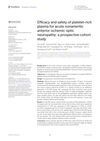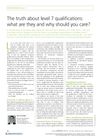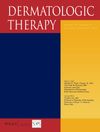 1 citations,
February 1994 in “Drug Investigation”
1 citations,
February 1994 in “Drug Investigation” Sulfasalazine might cause hair loss, especially in women, and stopping it can reverse the hair loss.
 December 2024 in “International Journal of Research in Ayurveda and Pharmacy”
December 2024 in “International Journal of Research in Ayurveda and Pharmacy” Sowbhagya Chundi Legiyam helps postpartum women recover and prevent infections.
 December 2024 in “Research Square (Research Square)”
December 2024 in “Research Square (Research Square)” Placental stem cell exosome therapy improves hair growth and reduces hair loss.
 May 2024 in “International journal of nanomedicine”
May 2024 in “International journal of nanomedicine” Plant-derived extracellular vesicles show promise for treating diseases like cancer and inflammation.
 March 2024 in “Frontiers in medicine”
March 2024 in “Frontiers in medicine” PRP treatment can safely improve short-term vision in acute NAION patients.
 January 2024 in “Regenerative Biomaterials”
January 2024 in “Regenerative Biomaterials” Metal organic frameworks-based scaffolds show promise for tissue repair due to their unique properties.
 December 2023 in “Research in pharmacy”
December 2023 in “Research in pharmacy” Phytotherapeutic compounds and supplements can help manage Polycystic Ovarian Syndrome (PCOS).
 November 2023 in “Klìtinna ta organna transplantologìâ”
November 2023 in “Klìtinna ta organna transplantologìâ” MSC-derived exosomes can help treat COVID-19, hair loss, skin aging, and arthritis.
 October 2023 in “Biomedical science and engineering”
October 2023 in “Biomedical science and engineering” Innovative methods are reducing animal testing and improving biomedical research.
 March 2023 in “International Journal of Biomedicine”
March 2023 in “International Journal of Biomedicine” Hair loss from Telogen Effluvium can be managed by treating the underlying cause and may improve with treatments like minoxidil.
 June 2021 in “bioRxiv (Cold Spring Harbor Laboratory)”
June 2021 in “bioRxiv (Cold Spring Harbor Laboratory)” Gene therapy in mice increased lifespan and improved health without causing cancer.

Accurate diagnosis and timely, tailored treatments improve outcomes in obstetrics and gynecology.
 December 2017 in “The journal of investigative dermatology. Symposium proceedings/The Journal of investigative dermatology symposium proceedings”
December 2017 in “The journal of investigative dermatology. Symposium proceedings/The Journal of investigative dermatology symposium proceedings” The summit aimed to speed up finding treatments for alopecia areata.
 December 2017 in “Journal of Aesthetic Nursing”
December 2017 in “Journal of Aesthetic Nursing” Level 7 qualifications for aesthetic procedures like botox and fillers are not mandatory, but they can improve skills and credibility.
 November 2017 in “Dermatologic Therapy”
November 2017 in “Dermatologic Therapy” A new topical solution safely reduces hair shedding by 38% on average by tightening a muscle in the scalp.
 January 2017 in “Clinical approaches and procedures in cosmetic dermatology”
January 2017 in “Clinical approaches and procedures in cosmetic dermatology” Men are increasingly seeking quick-result cosmetic treatments for their thicker, oilier skin and hair loss issues.
 November 2016 in “Dermatologic Therapy”
November 2016 in “Dermatologic Therapy” "Dermatologic Therapy" offers expert treatment info for various skin diseases.
 January 2015 in “Springer eBooks”
January 2015 in “Springer eBooks” Chronic kidney disease can cause hair loss, which may be related to zinc deficiency or certain medications, and sometimes hair grows back when the underlying issue is treated.
 January 2015 in “Journal of clinical & experimental dermatology research”
January 2015 in “Journal of clinical & experimental dermatology research” A protein combining parathyroid hormone and collagen helped hair regrow in mice with a hair loss condition.
 January 2013 in “The Journal of Sexual Medicine”
January 2013 in “The Journal of Sexual Medicine” The document suggests that finasteride may cause depression and suicidal thoughts, while prostate surgery does not harm sexual health.
 May 2011 in “Expert Review of Endocrinology & Metabolism”
May 2011 in “Expert Review of Endocrinology & Metabolism” Breast cancer survivors may have a higher risk of falls, tamoxifen could prevent breast cancer and deaths, new guidelines urge caution with prostate cancer therapy, and early balding in men may indicate a higher prostate cancer risk.
 May 2010 in “Dermatologic Clinics”
May 2010 in “Dermatologic Clinics” The document concludes that new treatments for skin conditions are complex but effective, including spironolactone for female hair loss and propranolol for infantile hemangiomas.
 July 2008 in “Biomedical Imaging and Intervention Journal”
July 2008 in “Biomedical Imaging and Intervention Journal” New cancer treatments are more precise and less toxic, improving survival rates, but Asia faces challenges in adopting these advancements.
 June 2008 in “British Journal of Dermatology”
June 2008 in “British Journal of Dermatology” UK medical students lack dermatology education, liver biopsy patients with risk factors show more fibrosis, and certain fungi resist drugs due to melanin; genetics may influence female hair loss.
 April 2008 in “Expert review of dermatology”
April 2008 in “Expert review of dermatology” Mutations in the P2RY5 gene cause hereditary woolly hair.
 January 2008 in “Springer eBooks”
January 2008 in “Springer eBooks” Thyroid hormone may be useful for treating various skin conditions and needs more research.
 February 2006 in “Journal of The American Academy of Dermatology”
February 2006 in “Journal of The American Academy of Dermatology” Terbinafine is more effective than itraconazole for toenail fungus, especially in older patients, and debridement improves its effectiveness.
 April 2003 in “Experimental Dermatology”
April 2003 in “Experimental Dermatology” The workshop highlighted the genetic links and psychological impacts of hair loss and skin disorders.
 April 1986 in “Postgraduate Medicine”
April 1986 in “Postgraduate Medicine” Accurate diagnosis and treatment of skin and hair disorders are crucial, with growing focus on hair loss treatments like topical minoxidil.
 November 2009 in “Cambridge University Press eBooks”
November 2009 in “Cambridge University Press eBooks” Minoxidil and finasteride combined can effectively treat hair loss.






























